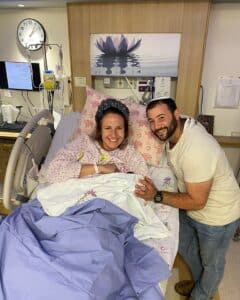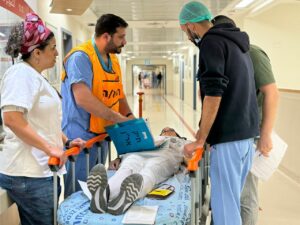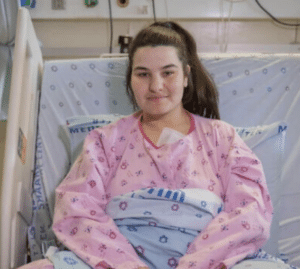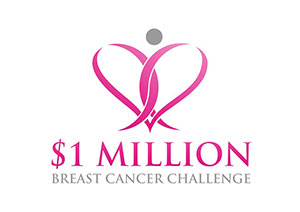One of Israel’s leading news websites recently interviewed Dr. Ofer Merin, Deputy Director-General and Head of the Trauma Unit at Shaare Zedek Medical Center (in Hebrew). Below some excerpts from this fascinating piece which shares a compassionate perspective of treating patients at Shaare Zedek Medical.
Regarding mass-casualty events, Dr. Merin explained, “We have an organized process with clearly defined roles and responsibilities…Aside from the medical staff, support units are deployed including laboratories, imaging units, the blood bank, social workers, we typically open an information hotline, we coordinate with hospital security, we bring in additional people to transport the sick and wounded between departments, etc.”
Dr. Merin also touched on some of the types decisions and considerations involved in treating the wounded, “Some of the injured arrive at the hospital in a condition where hospitals in the US, from my experience, would declare the person dead…
It is possible that our emotional involvement makes it more difficult for us to call the time of death [and no longer fight to save the person’s life]. I have learned that sometimes heroic resuscitation attempts….are of great importance to the family of the injured. The family must contend forever with the loss of their loved one. It is very important that the family feels that we did everything we could…
There were situations where resuscitation efforts that lasted several hours helped the family come to terms with the situation and deal better with the bitter news. In some cases, this additional time helped families decide to donate their loved ones cornea or the family decided to ask us to gather sperm. It is impossible to ignore the emotional aspects…
I keep in touch with some of the families, and even months later, I see the impact of those hours [when the medical staff continued to fight to save the injured person], it effects how the family continues with their lives.”
Dr. Merin describes, “Part of our responsibility is not only to treat the wounded but to also help the people who are part of the person’s life. For example, in the case of Captain Eliav Gelman, it could be that other doctors would have told the family that he arrived at the hospital dead, we tried to do everything we could, we’re sorry and then left the room. [At Shaare Zedek], from the moment that we declared him dead, we were with the family for several hours. The family told me later how significant that time was for them and the difference it made…Gelman’s wife was in her eighth month of pregnancy and we took her to the operating room to say goodbye to her husband. The staff broke down in tears…”
Dr. Merin continues and highlights the importance of making quick decisions like in the case of Border Patrol officer Raz Bibi, “We quickly identified that he was injured in his heart, we opened his chest in the Trauma Unit and found the hole in his heart and saved him. After a week and a half he was released from the hospital and went home,… What fascinates me in the Trauma Unit, is making decisions quickly … The decisions need to be made in minutes and that’s what makes the difference between life and death.”
For more details please read the article:
http://www.nrg.co.il/online/1/ART2/773/051.html










